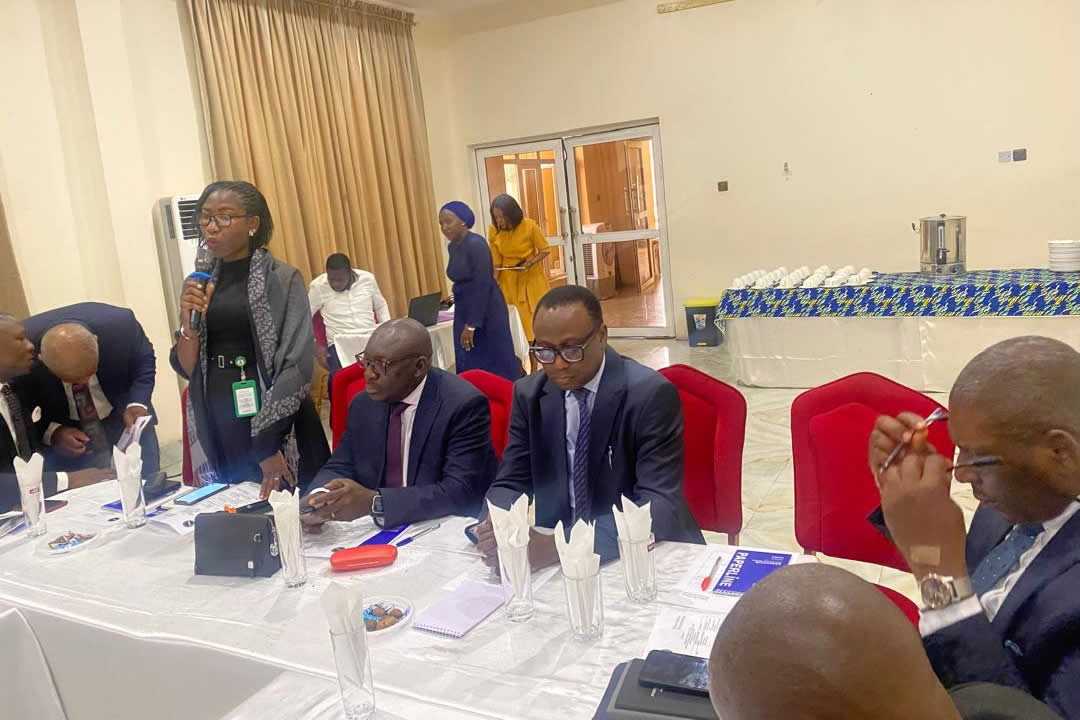3-Day Collaborative Engagement with the Plateau State Justice Sector on Implementation of Plateau State Administration of Criminal Justice (ACJL)

From March 18-20, 2025, Juritrust Centre for Socio-Legal Research and Documentation engaged with the Plateau State Justice Sector at Crispan Hotel, Jos, to examine and enhance the implementation of the Plateau State Administration of Criminal Justice Law (ACJL) 2018. On 17th March, 2025, the Honourable Chief Judge of the High of Plateau State, Hon. Justice
From March 18-20, 2025, Juritrust
Centre for Socio-Legal Research and Documentation engaged with the Plateau State Justice Sector at Crispan Hotel, Jos, to examine and enhance the implementation of the Plateau State Administration of Criminal Justice Law (ACJL) 2018.
On 17th March, 2025, the Honourable Chief Judge of the High of Plateau State, Hon. Justice David Mann welcomed members of Juritrust centre, the lead Researcher, Prof. Adedeji Adekunle SAN and Director of Studies, Mr. Olugbemi Jaiyebo in his office and gave them a brief tour round the High Court. Prof. Adekunle commended the Plateau State for having a standard Family Court which is a one-off unique feature any state can have.

DAY 1
The 3-day program which held at Crispan Hotel, Jos officially kicked off on 18th March, 2025 with a one-day engagement with the Justice Sector Reform Team. It was a strategic session with the Justice Sector Reform Team (JSRT), including magistrates, the Ministry of Justice, the Nigerian Police, Correctional Services, the NBA, and Legal Aid. This meeting focused on key legal issues such as lay prosecution, confessional statements, case management, plea bargains, witness protection, and sentencing. The discussion also incorporated gender mainstreaming and disability inclusion to align with best practices in justice. The Honourable Chief Judge, Hon. Justice David Mann, in his opening remarks, emphasized the importance of legal reforms in upholding due process and ensuring an effective justice system and beckoned on all stakeholders to continue to strive to ensure the standard of justice doesn’t fall. The Attorney General of the State was duly represented by Mrs Shetak Beeklang. The insights and deliberation left all participants with a call to be more intentional with complying with the law as well as fostering co-operation amongst all stakeholders. (INSERT PICTURES FROM DAY ONE)

DAY 2
The final two days focused on engaging only the Honourable Judges of the High Court of Justice, Plateau State, with discussions on admissibility of evidence, case management, sentencing guidelines, and gender-sensitive criminal justice reforms. The Hon. Chief Judge in his opening statements addressed the issues of lack of technology and lack of knowledge on compliance with law amongst law enforcement bodies as one of the crucial challenges faced within the justice system. In the course of deliberation on presentations made, the Hon. Judges noted that case management is inevitable and more efforts will be done to ensure cases are dispensed with speedily. Also, of importance is the need to examine the law from the gender equality and social inclusion perspective. It is obvious that more work needs to be done in terms of structural renovations and legal provisions to ensure justice is accessible and inclusive within the state. The engagement concluded with closing remarks from Mr. Olugbemi Jaiyebo, Director of Studies, who expressed gratitude to the Chief Judge, Justices, and JSRT members, emphasizing that the insights gained would drive meaningful legal reforms in the state.
#LegalReform #JusticeForAll #ACJL2018 #JuritrustCentre #PlateauStateJustice

























